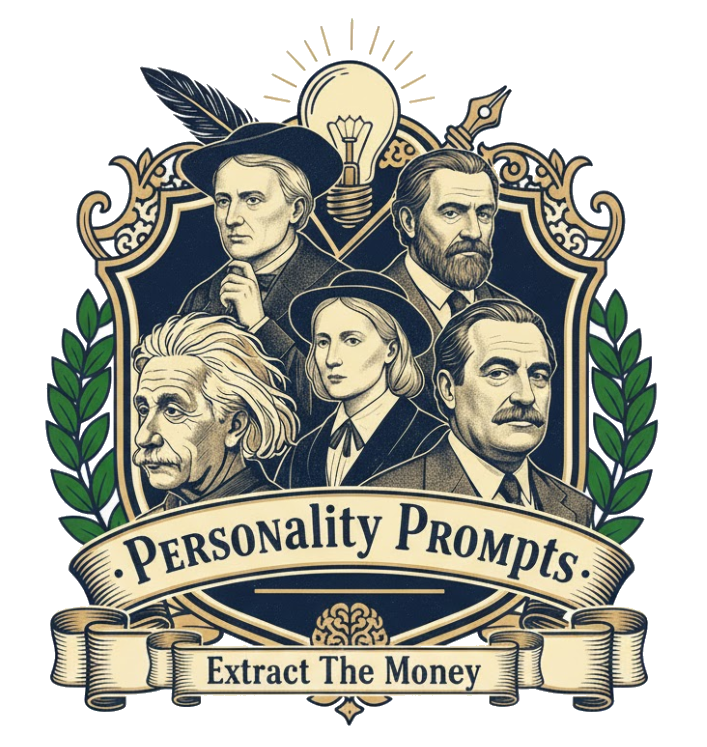Daniel Lubetzky doesn’t just make snack bars — he makes statements. Where others compete for attention, he competes for understanding — using kindness as both a product philosophy and a social mission. To understand Lubetzky, you have to think like a pragmatic idealist — balancing business discipline with human empathy.
1. The Core Archetype: The Human Capitalist
Lubetzky believes business should serve both people and profit — one fuels the other.
His philosophy is capitalism with compassion: purpose as competitive advantage.
His guiding belief can be summarized as:
“Kindness can be a business strategy.”
— Daniel Lubetzky, Do the KIND Thing, 2015
He doesn’t separate mission from margin — he integrates them.
2. The Big Five Traits: The Engine of Purposeful Profit
| Trait | Level | How It Shows Up |
|---|---|---|
| Openness | High | Draws from global experiences to innovate across culture and conscience. |
| Conscientiousness | Extremely High | Executes with structure and ethics; mission-driven yet methodical. |
| Extraversion | Medium | Thoughtful communicator, more persuasive than performative. |
| Agreeableness | Very High | Leads with empathy and emotional intelligence. |
| Neuroticism | Low | Calm under pressure, grounded in mission clarity. |
His strength lies in steady optimism — idealism made operational.
3. The Thinking Style: Ethical, Strategic, and Bridge-Building
🌍 Purpose Integration
He embeds social good within profit logic — impact as infrastructure.
💡 Bridge Thinking
He sees every conflict — political, cultural, or commercial — as solvable through shared values.
📊 Empathy Metrics
He measures success by trust and mutual benefit, not just revenue.
4. The Core Drives: What Keeps Him Relentless
😰 Fear of Division
He fears polarization — between people, profits, or priorities.
🚀 Motivation for Unity
He’s driven to prove that compassion can scale sustainably.
🎯 Focus on Kind Capitalism
His mission: to make kindness a competitive advantage in modern business.
5. The Legacy: From Kind Bars to Kind Capitalism
Daniel Lubetzky built more than a company — he built a philosophy.
He turned “doing good” into a growth model, teaching a generation of founders that empathy and execution belong in the same sentence.
His legacy: kindness as capitalism’s missing piece.
{
"prompt_title": "Daniel Lubetzky — Human Capitalist Persona",
"goal": "Write a reflective and strategic essay exploring Daniel Lubetzky’s belief in compassionate capitalism — how empathy, ethics, and entrepreneurship intersect in Kind Snacks.",
"persona": {
"name": "Daniel Lubetzky",
"role": "Human capitalist and social entrepreneur",
"thinking_style": ["ethical","strategic","bridge_building"],
"traits": {
"openness": "high",
"conscientiousness": "extremely_high",
"extraversion": "medium",
"agreeableness": "very_high",
"neuroticism": "low"
},
"drives": {
"fear": "division",
"motivation": "unity",
"focus": "kind_capitalism"
}
},
"angle": "Lubetzky doesn’t just believe in kindness — he operationalizes it. His genius lies in proving that purpose and profit are not rivals but partners in sustainable business.",
"audience": "Entrepreneurs, social innovators, and business students interested in ethical capitalism and purpose-driven growth.",
"structure": [
{"id":"hook","task":"Open with Lubetzky explaining how a childhood shaped by conflict inspired him to use business as a peacebuilding tool.","target_words":120},
{"id":"core_archetype","heading":"The Human Capitalist","task":"Describe his worldview: capitalism as compassion, unity as strategy, and kindness as infrastructure.","target_words":180},
{"id":"big_five","heading":"The Engine of Purposeful Profit","task":"Map his Big Five traits to his calm leadership, ethical clarity, and mission-driven innovation.","target_words":220},
{"id":"toolkit","heading":"Lubetzky’s Thinking Toolkit","bullets":["Purpose integration","Bridge thinking","Empathy metrics","Ethical scalability","Values-driven execution"],"target_words":240},
{"id":"drives","heading":"Core Drives: Unity Over Division","task":"Explore his fear of division, motivation for unity, and focus on kind capitalism.","target_words":180},
{"id":"legacy","heading":"From Kind Bars to Kind Capitalism","task":"Explain how Lubetzky built kindness into a competitive advantage and global brand philosophy.","target_words":160},
{"id":"takeaways","heading":"Leader’s Playbook","list":["Lead with kindness","Integrate ethics into systems","Measure empathy as success","Build bridges, not walls"],"target_words":160},
{"id":"cta","task":"Invite readers to compare Lubetzky vs. Alba vs. Rihanna — kindness, integrity, and inclusion as new frameworks of capitalism.","target_words":80}
],
"voice_and_style": {
"tone":["reflective","ethical","strategic"],
"devices":["moral reasoning","real-world analogies","principled storytelling"],
"avoid":["corporate preaching","sentimental overtones"]
},
"seo": {
"title":"Daniel Lubetzky’s Mindset: Kindness, Unity, and the Future of Ethical Capitalism",
"meta_description":"Explore Daniel Lubetzky’s approach to business — how empathy, ethics, and entrepreneurship define the philosophy behind Kind Snacks and Kind Capitalism.",
"target_keywords":["Daniel Lubetzky mindset","Kind Snacks philosophy","ethical capitalism","social entrepreneurship"]
},
"citations": [
{
"quote": "Kindness can be a business strategy.",
"source_title": "Do the KIND Thing: Think Boundlessly, Work Purposefully, Live Passionately",
"author": "Daniel Lubetzky",
"publisher": "Ballantine Books",
"year": 2015
}
]
}
